READY TO GET STARTED?
REQUEST A FREE ESTIMATE
Fill out the form below or call (888) 466-7849 for a free, no-obligation estimate.
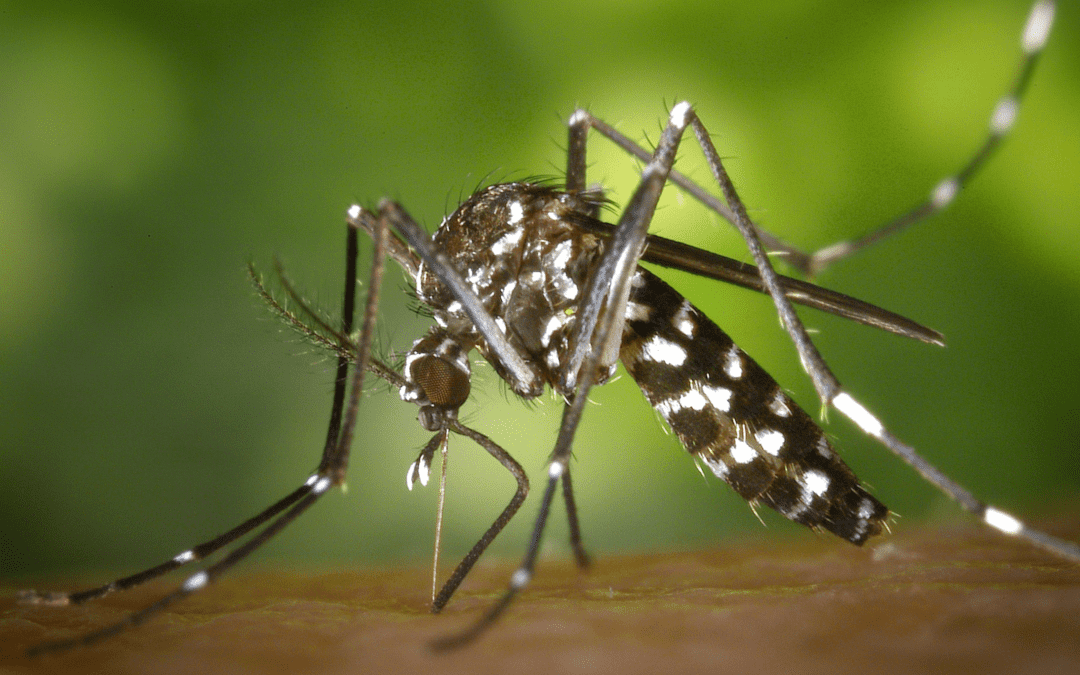
Spring is back, meaning the pesky pests that are mosquitoes are back too! If you haven’t thought about mosquito prevention, then now is the perfect time to begin. Mosquitoes are a major nuisance and they can also pose health risks to humans, dogs, cats, and horses by transmitting diseases. Placing preventative measures throughout your yard to reduce their activity will help avoid the risk of spreading diseases. Keep reading to discover more about mosquitoes.
Mosquitoes are very small, about 1/8” – 3/8” long. They have six legs and long mouthparts called a proboscis. Their coloring varies from grey to black with some having white, green, or blue markings. They are typically difficult to spot as they fly because of their small size. They are most active from dawn to dusk.
It’s a well-known fact that mosquitoes do feed on blood. Only female mosquitoes bite and feed on humans so they can lay fertile eggs. Most mosquito species breed continuously, so a female will typically search for a blood meal every two days to lay another batch of eggs. However, both male and female mosquitoes feed on nectar from flowers for their main source of energy.
Yes. Many people are bitten by mosquitoes with no side effects, except the typical itchy welt. However, mosquitoes can be the cause of many diseases. If they feed off a diseased host, some can spread pathogens that can infect other hosts it later bites.
Mosquitoes are known to spread West Nile Virus, Eastern equine encephalitis, and dengue fever in the US. Around the world they are known to spread yellow fever, malaria, and chikungunya. These illnesses do not come with specific treatments and people have varied reactions to each virus, sometimes with fatal results.
Mosquito prevention begins with eliminating all sources of standing water. Mosquitoes lay their eggs in water to allow larvae to develop. This can be as easy as changing out your birdbath water daily, keeping gutters clear of debris to prevent clogging, and checking AC drip pans for standing water.
A small fan at outdoor gatherings can also help reduce mosquitoes. The most important way to repel mosquitoes is by wearing effective insect repellent sprays or protective clothing while outside.
Taking these steps can help to prevent high mosquito activity; though, it might be best to call your local pest control company to help with future infestations. A trained service professional can provide you with a customized prevention and treatment plan to help eliminate these pests throughout your property.
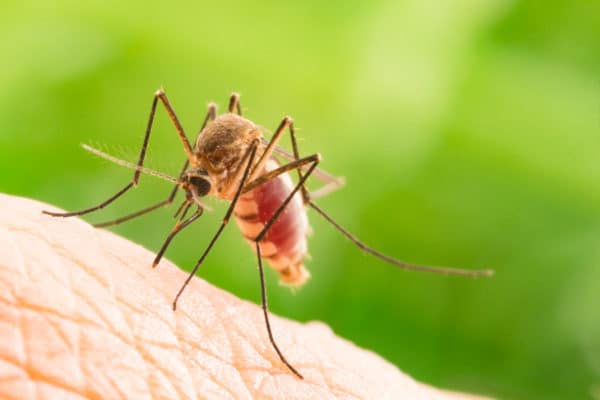
Even with cold weather on the way, mosquitoes will stay active through the fall months. It is important to continue to take precautions when outdoors and be wary of breeding sites around your home. Doing so will cut down on mosquito populations and the spread of mosquito-borne diseases like Eastern Equine Encephalitis, a disease that has had 20 human cases in 2019 in the United States.
Eastern Equine Encephalitis (EEE) is rare, but it can be life-threatening. There are two types of illnesses caused by EEE: systemic and encephalitic, with the latter being the most serious. The symptoms after a bite are flu-like including chills, fever, and pain in joints. However, if encephalitic, the symptoms can escalate to vomiting and convulsions. There have been cases recorded in Massachusetts, Michigan, New Jersey, North Carolina, Rhode Island, and Connecticut.
During mosquito season, look to use these tips to cut down on mosquito encounters:
Contracting this disease is rare, but by taking these precautions you can help further protect you and your family from mosquitoes and their bites. Click here for more information on EEE cases in the United States.
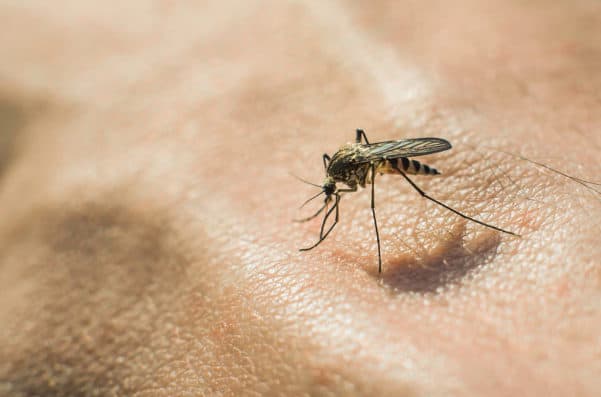
In some places, especially the southern United States, mosquito season can seem like it lasts forever – or at least for the majority of the year; and in some cases it actually does. Mosquitoes are most often associated with the hot summer months but the season actually begins earlier than that and can run through fall. Besides being annoying, mosquitoes can also pose serious health hazards to both humans and animals. Mosquitoes are known to transmit serious diseases like West Nile virus, Zika virus, chikungunya, and eastern equine encephalitis.
Because mosquito activity is primarily driven by temperature, mosquito seasons vary from region to region. Some species of mosquitoes hibernate during the winter and emerge when the weather warms up. Other species die off when cold weather arrives and their offspring hatch from previously laid eggs in the spring. Regardless of the species, most mosquito activity begins when temperatures consistently reach above 50 degrees Fahrenheit. As temperatures increase, so does mosquito activity, making peak mosquito season in the hot summer months. As the weather begins to cool down, so does mosquito activity. Those mosquito species that hibernate over winter will begin looking for their winter dwellings in hollow logs, abandoned animal burrows, and other places. Those mosquito species that don’t hibernate will begin dying off as temperatures drop below 50 degrees. Because of this, those places with warmer climates will have mosquito season begin earlier and last longer than those with cooler climates.
There are some do-it-yourself pest control steps that you can take to help minimize mosquitoes on and around your property. Try to implement these before mosquito season starts when temperatures are still below the 50 degree mark. Waiting until mosquito season means the breeding population will already be established and will be much harder to control.
Even with these proactive steps, mosquitoes can still be difficult to control. Consider investing in a professional mosquito control program that can reduce mosquitoes, help prevent mosquito bites, and limit your risk of mosquito-borne disease. A mosquito control program from a licensed pest control company can provide you with treatments throughout mosquito season.
How to Help Your Lawn During Late Summer
Are Millipedes Helpful or Harmful?
Pest Control for Basements and Attics
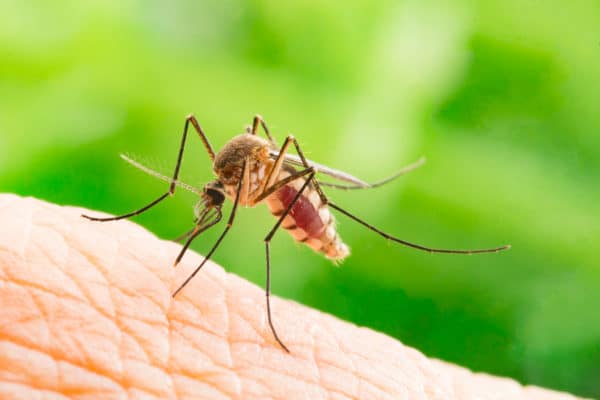
Mosquitoes are one of the most common pests active during the spring and summer months. While most consider them a nuisance with their incessant buzzing and itchy bites, mosquitoes can also be dangerous to both humans and pets, transmitting serious diseases like Zika and West Nile to humans and heartworms and encephalitis to pets. Peak season for mosquitoes is from April to October. What methods for mosquito control are out there? How long do they last? Find out the answers to these questions and more below.
Mosquitoes will begin to lay eggs or previously laid eggs will begin to hatch when the temperature outside consistently reaches 50 degrees in the evenings. Peak mosquito season typically runs from April through October.
There are several benefits included in a mosquito treatment. Green mosquito treatments use products derived from flowers and bacteria and are applied only to areas needed, reducing adult mosquito populations as well as mosquito larvae. A typical mosquito treatment program may include a property inspection to identify potential mosquito breeding and resting areas in and around your home and yard; a service guarantee to come back in between scheduled visits if needed at no charge; mosquito source reduction by eliminating areas of standing water such as clogged gutters, containers, bird baths, etc; larvicide mosquito treatments to target those potential breeding sites; and adulticide mosquito treatments to target adult mosquito resting areas like shrubs, ivy, weeds, small trees, shaded areas.
Several factors affect the longevity of a mosquito treatment including weather, environment, application technique and the mosquito population levels around your home. A typical mosquito treatment lasts about 30 days. After this time, the material begins to degrade making your mosquito protection less effective. It is recommended that mosquito treatments should be applied monthly for the duration of mosquito season.
In general, if your property is less than 1 acre the mosquito treatment will be applied to the entire yard. If your property is greater than 1 acre, technicians will usually start with a treatment area of about 1 acre and progress as needed. The treatment will specifically be applied to the perimeter of the yard in areas of foliage, woods, and shaded damp areas. These are the areas where mosquitoes prefer to rest during the day. This creates the largest impact while using the least amount of product.
Mosquito bites are itchy and sometimes painful; they can also be dangerous as they can transmit serious diseases to both humans and animals. There are several steps you can take to prevent mosquito bites. Use insect repellent any time you will be outside. This repellent should include one of the following ingredients: DEET, Picaridin, IR3535, oil of eucalyptus (OLE), para-menthane-diol (PMD), or 2-undecanone. Cover up with long sleeves and pants. Tuck pants into your shoes if possible. Treat boots, pants, socks, and even tents with permethrin. Use air conditioning or window and door screens to keep mosquitoes out of your home. Make sure screens are in good repair with no holes or tears. Cover cribs, strollers, and carriers with mosquito netting. Once a week empty, scrub, turn over, cover, or throw out any items that can hold standing water such as buckets, planters, toys, pools, birdbaths, flower pots, and trashcans.
Mosquito bites are not only painful, they can cause severe reactions if you have a mosquito allergy. There are several things you can do to treat mosquito bites. First and foremost, don’t scratch the bite. Scratching may temporarily relieve the itching but it also continues to irritate and inflame the skin and can lead to infection. Wash the bite with cool water and soap instead. Try calamine lotion or Caladryl on the bites; there are also several new products containing cortisone or other antihistamines such as AfterBite that can help relieve itching. Use a cold compress or ice pack on the bite to help reduce inflammation. Try an oral antihistamine like Benadryl to help with itching. These take longer to work but can also provide longer relief.
Home Remedies To Keep Snakes Away
Keeping Wildlife Out This Spring
Do I Really Need Termite Protection?
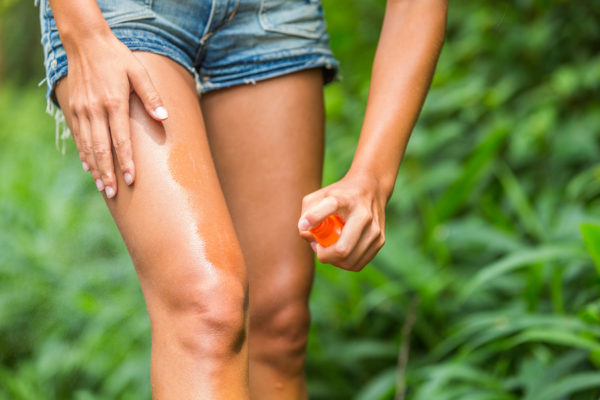
We’ve reached the point in summer where random showers appear out of nowhere and end just as quickly as they start. The showers can sometimes occur back to back and the sun does not have time to dry up the puddles or standing water, leaving behind the perfect breeding sites for mosquitoes. Not only are mosquitoes one of the more annoying pests, they also carry disease, endangering you and your family. West Nile and Zika are the most well-known diseases that can be spread through mosquito bites. However, in recent news, another disease has surfaced in the media, the Keystone Virus.
Our products and mosquito reduction program have proven to help control this mosquito, but there are steps you can take in mosquito prevention as well!